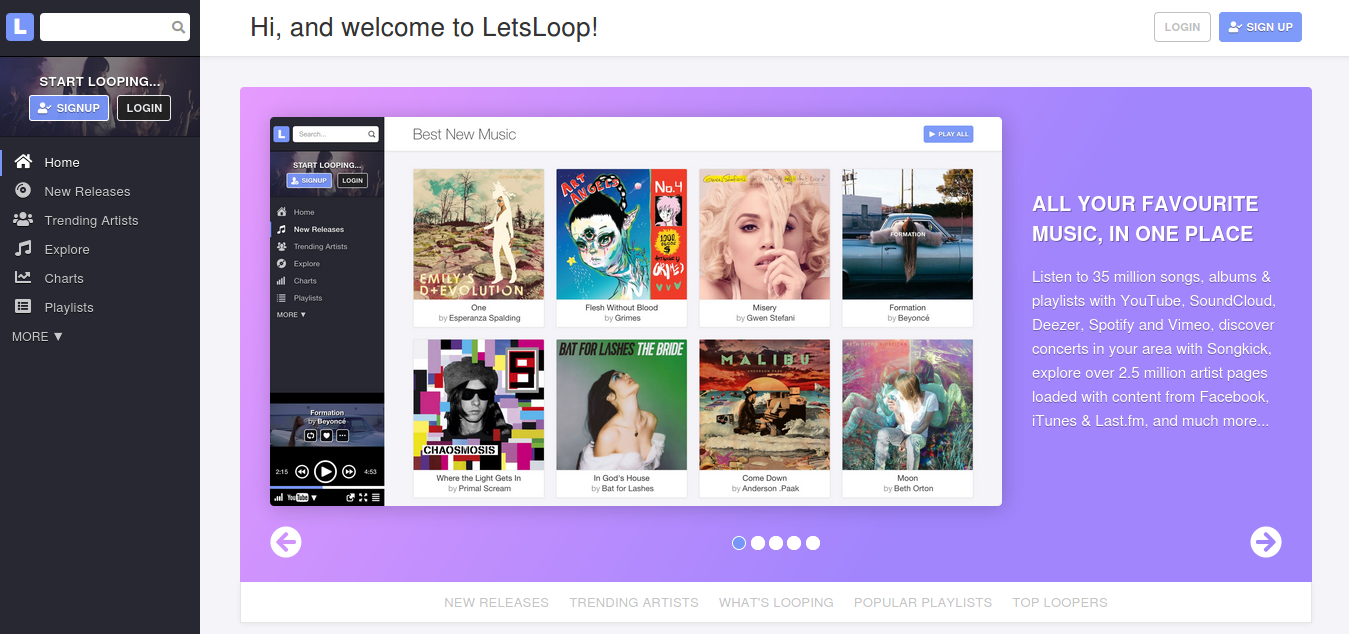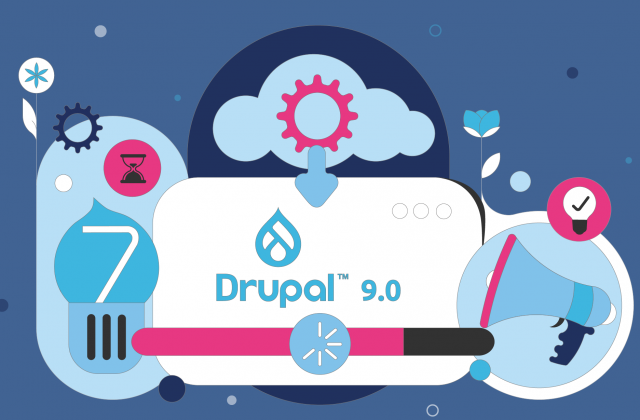Remember when you were young(er) and discovering music was easy? Have you ever stopped to think why that might have been the case?
A moment’s reflection probably yields a few factors, one of which I would bet is linked to being in constant contact not only with your peers (via school) but also those with whom you had the most in common with among this group – your friends.
It is for this reason that the concept of the music-based social network has arisen – as a way of maintaining these dynamics of sharing things you like with like-minded people. As life goes on we often lose contact with people that we shared interests and hobbies with – people move around, work full time, have families, live far away etc – but this doesn’t mean that the process of discovering exciting new things must suffer.
That is the central premise behind a new music-focused social network, Let’s Loop, designed to help you stay connected to the people who know you best and whom you know best (as well as for meeting others who share your interests and tastes). This way you can always maintain that precious circle of personalised recommendations that is so valuable for continuing to nourish your desire for stimulating new music.

After all, if you think about it, no automated service can truly compete with the recommendation of a friend who knows you not simply as a customer with a history (which is how Amazon recommendations generate tips for example) but as a real person.
If I look back over the music which has meant the most to me over the past decade or so, it has always tended to come as a recommendation from a close friend (not to say that these automated suggestions generate only useless results – just that they can never quite compete with the word-of-mouth tip of a close friend who shares your passion for music).
This is something that the team behind Let’s Loop understands – the website must be a way of facilitating that valuable interpersonal contact which enables people to discover new things and share info, rather than an attempt to supersede this with a recommendation-generating algorithm. Moreover, while it might not be the first example of music-sharing platform with social network dynamics (Last.fm and Spotify also offer some overlapping functions), it does nonetheless have a few very attractive features even at this early stage in its life.
Basically, you make a simple profile (with as much or as little personal detail as you like) and then find some of your friends with whom you wish to share recommendations for bands, songs, albums, web links and so on. The main point of contact on the network is a Facebook-style news feed which displays the details of what your friends are sharing and recommending (or everyone on the network if you wish – the choice is yours, you can even toggle to see group input around a particular artist for example).
Above this main feed you have six buttons through which the main interactions of Let’s Loop are structured: chat, recommend, listening to, link, concerts, and polls. This allows you to quickly publish something to the feed or check out chart-style lists of top songs or artists that users/friends are listening to and recommending for instance.

The nice thing about all this is that, unlike simply using Facebook’s ‘like’ button to try and do similar functions of general sharing, Let’s Loop is built specifically for music. So, when someone recommends a track, you have both a ‘listen’ and a ‘buy’ button right there in the feed. In essence new users could think of it as a ‘like’ function which is designed to operate only for music-related ‘likes’, and therefore offers a range of added functionality around this. Another example of this is that Let’s Loop can generate charts based on what people are sharing, since it involves only one type of thing – music.
Lest we forget, Facebook’s ‘like’ button is simply the evidence of the network trying to make sharing and recommending things to your friends easier. However, as general networks like this are so broad in their uses, it can sometimes provide a bit of an inadequate service for people who wish to focus on one particular thing in a bit more depth.
For something like this, I would instead certainly recommend Let’s Loop – it’s highly intuitive and easy to use, free, and, perhaps most importantly, I’ve already found out about a few new interesting bands to check out from using it.



